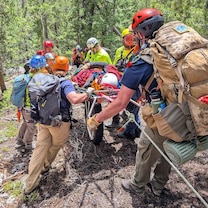BP Oil Spill: Oil Hits Louisiana Wetlands, Causes Spike in Seafood Prices
Louisiana governor says oil has arrived in state's marshes and wetlands.
May 19, 2010— -- The heavy, black oil that people along the Gulf Coast have feared since the start of the BP spill exactly a month ago finally has arrived on shore, Louisiana Gov. Bobby Jindal said today.
Following a boat tour of Pass a Loutre, La., today, Jindal reported seeing thick oil in the sensitive marshlands.
"The heavy oil is here," Jindal said. "This was the day everybody was worried about, everybody was concerned about. That day is here, that heavy oil is in the marshes."
"This was not the weathered, the emulsified oil," Jindal said. "It wasn't tar balls. This wasn't sheen. ... This is oil that is going to be very, very difficult for them to clean up."
Jindal said that more than 30 miles of the coastline has been oiled, and he called on the Army Corps of Engineers to approve an application to begin dredging along the Gulf of Mexico in hopes of stopping the further spread of the spill.
Further east, parts of the slick have entered the Gulf loop current, the federal government confirmed this afternoon. The current could carry the oil to Florida within weeks or even days, though much of the oil could dissipate before it reaches the state.
Today, fears that the oil spill had already arrived in Key West, Fla., were proven unfounded, as lab tests showed that the tar balls discovered on Key West beaches were not linked to the BP spill.
The Environmental Protection Agency said that tests of the air and large sections of the water show little toxicity so far. Still, with oil showing up on at least some shoreline, experts warn against any type of contact with the oil.
"It would burn your skin, particularly your inner arms, which are tender," said Wilma Subra, a chemist and environmental consultant.
Cleanup crews and ocean bathers are at risk of touching the oil, as are fishermen who now are finding oiled fish along the coast. In the bayous of the Mississippi Delta today, fish were seen swimming in oil.
About 45,000 square miles of fisheries have been closed because of the spill, and it seems to be having an effect on the price of seafood far from the oil. Today, fish that normally sold for $2.50 a pound were going for $3.25.




